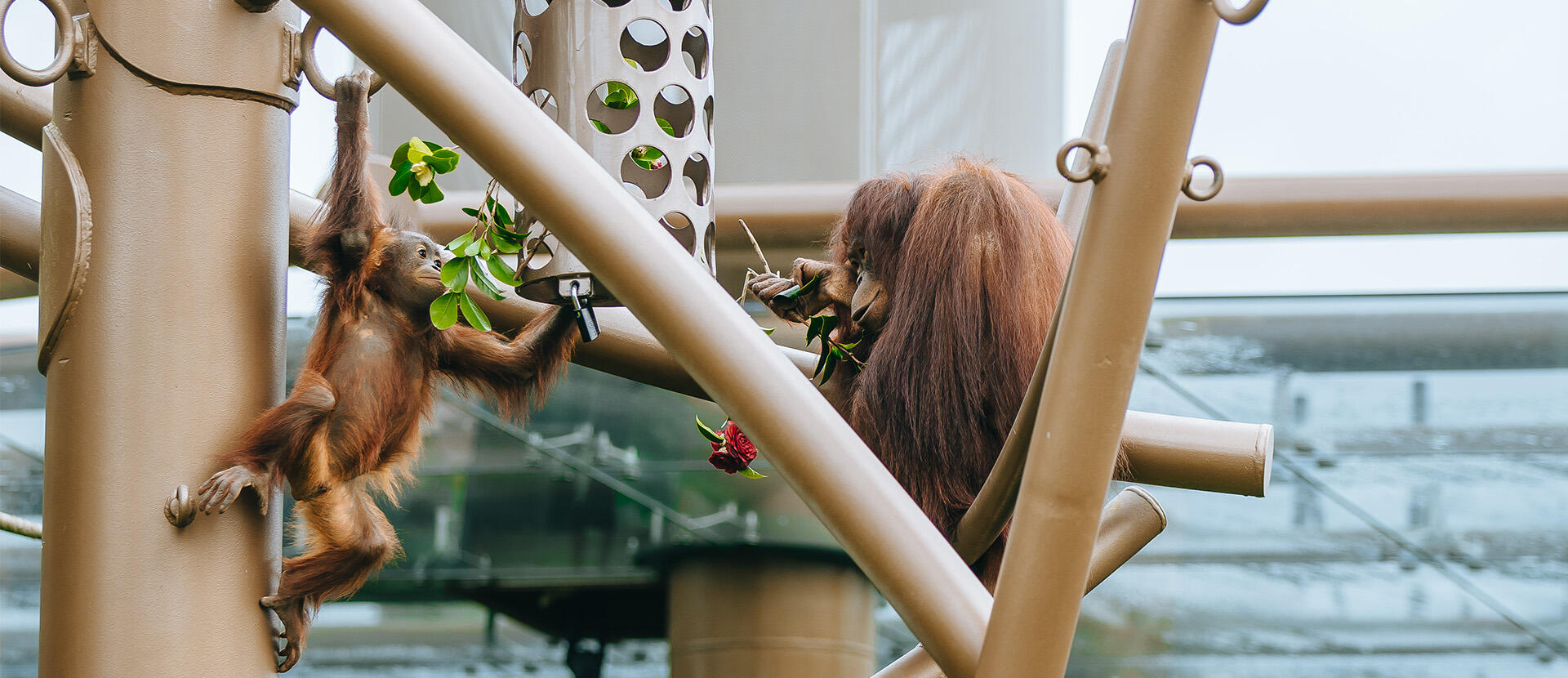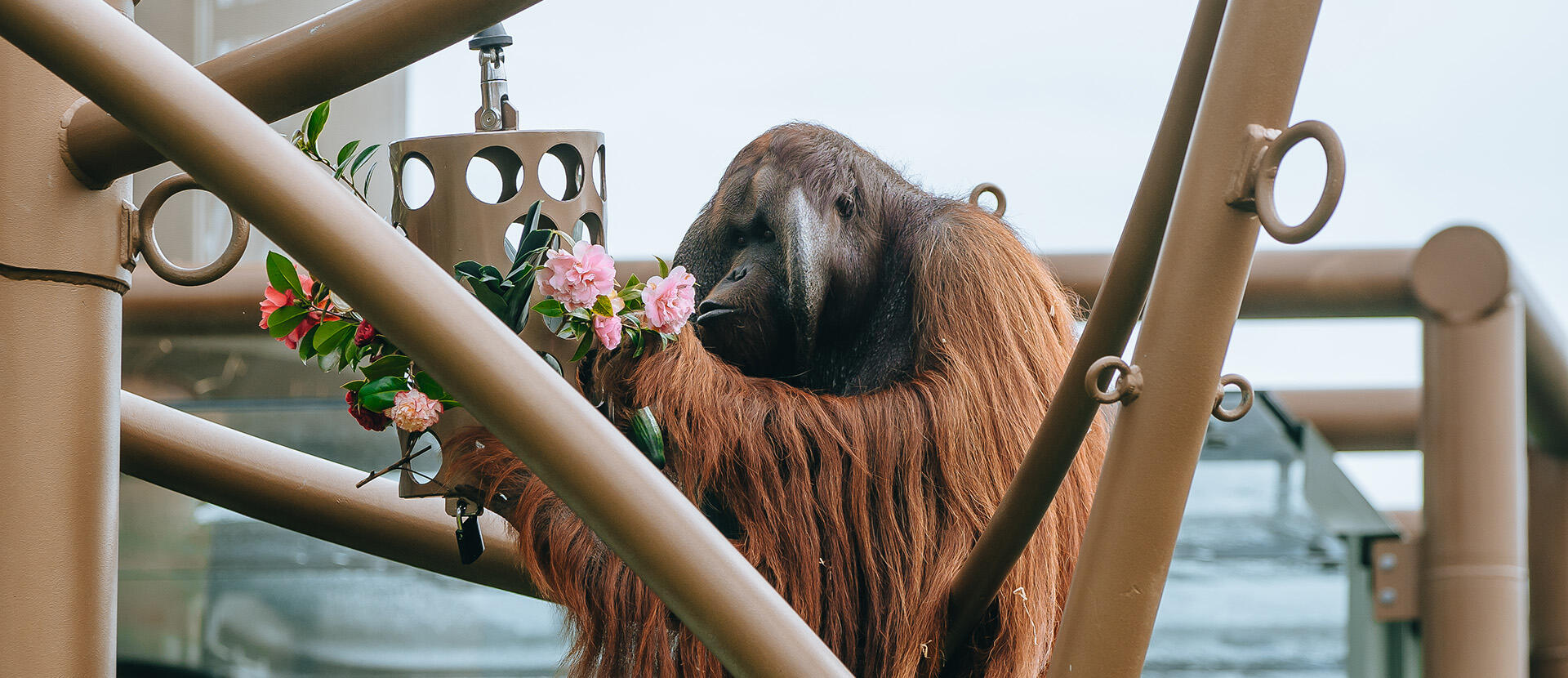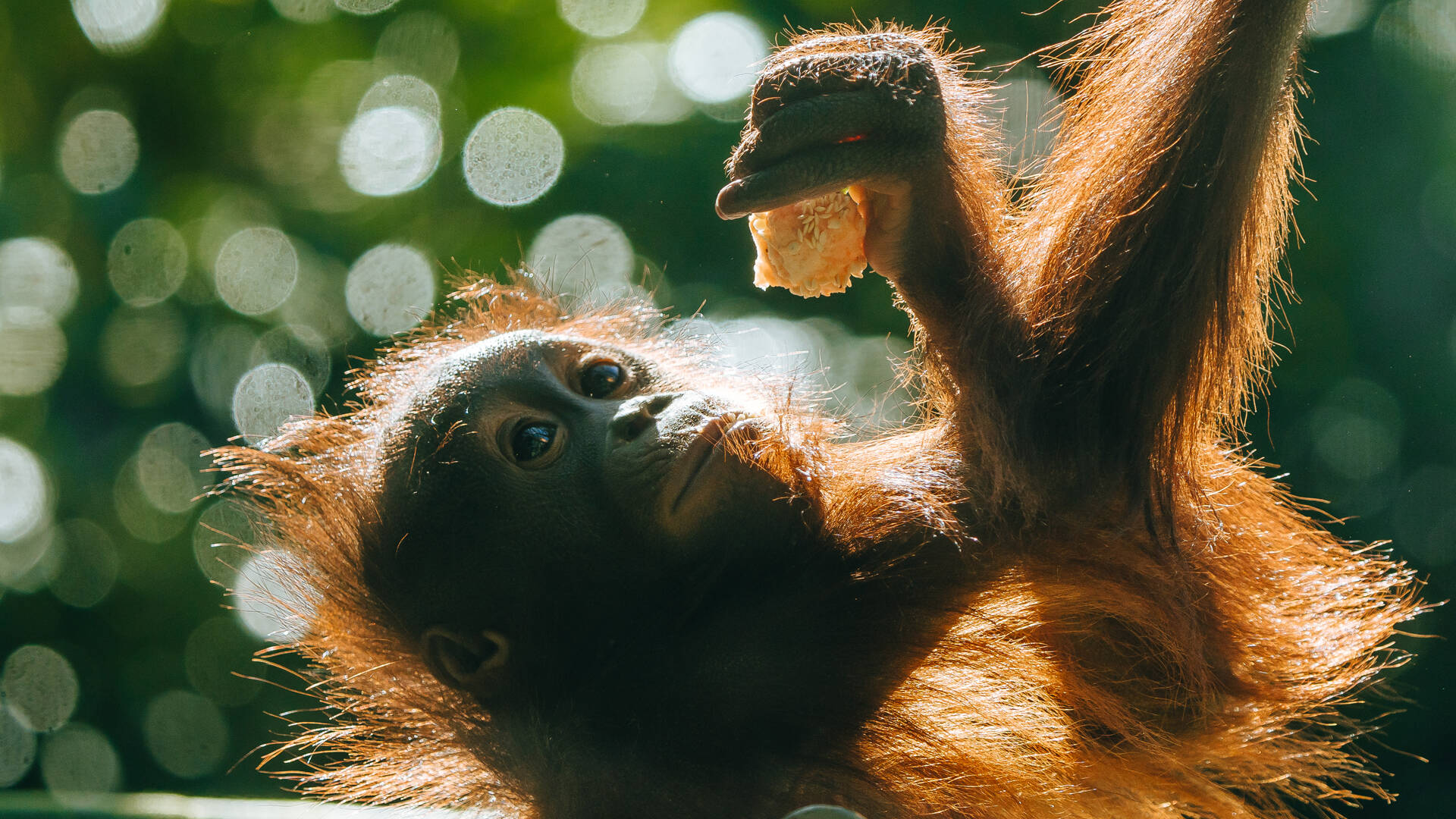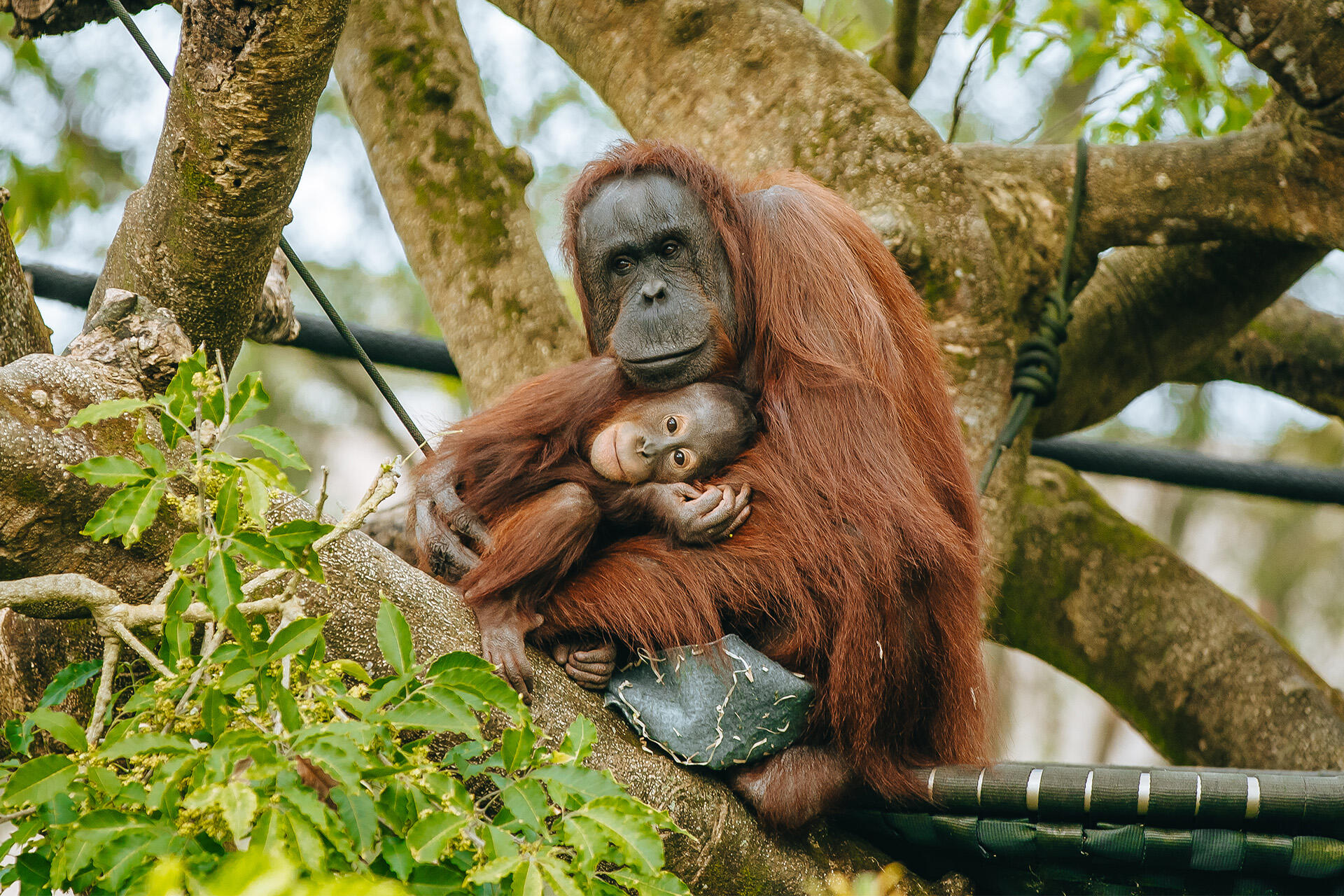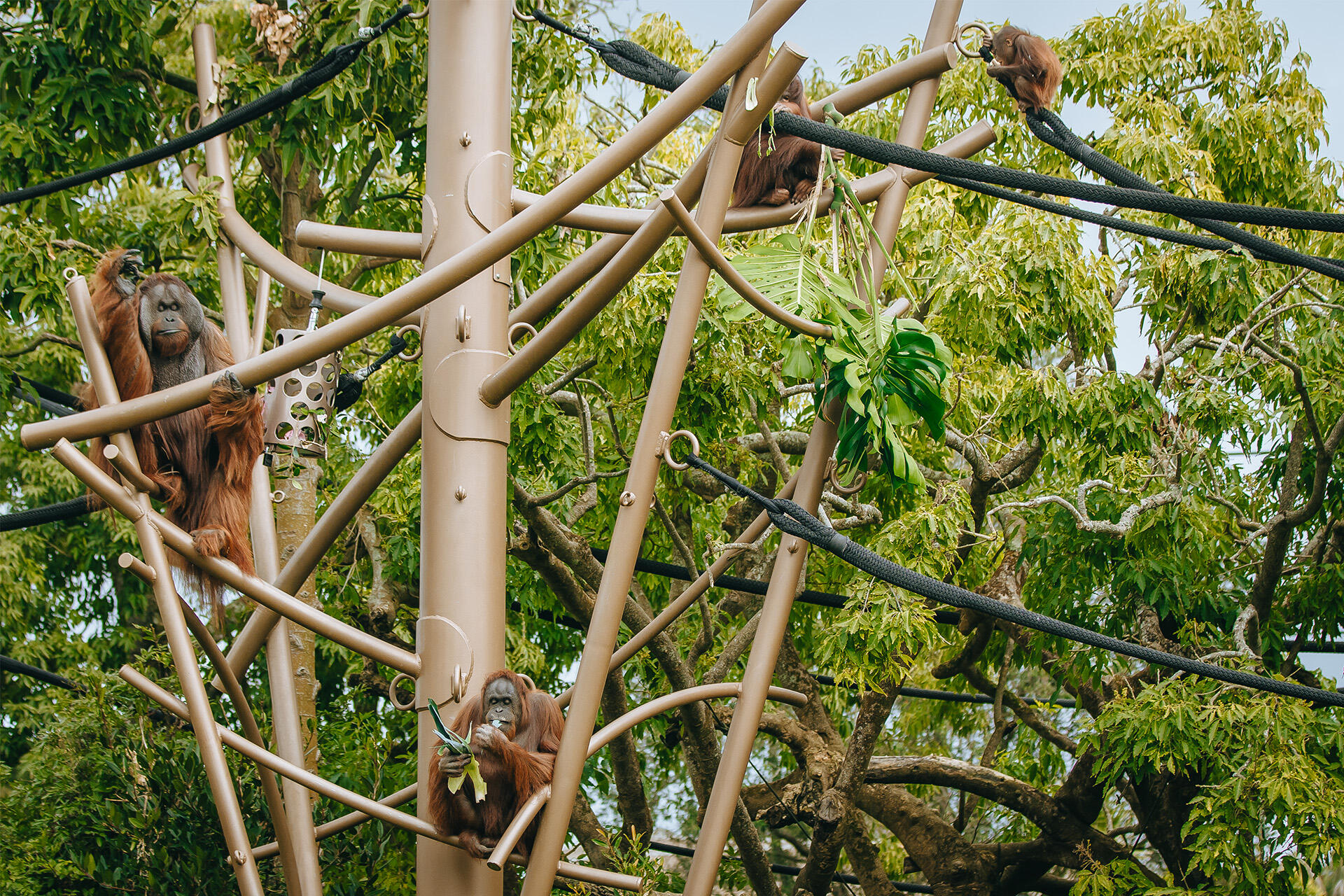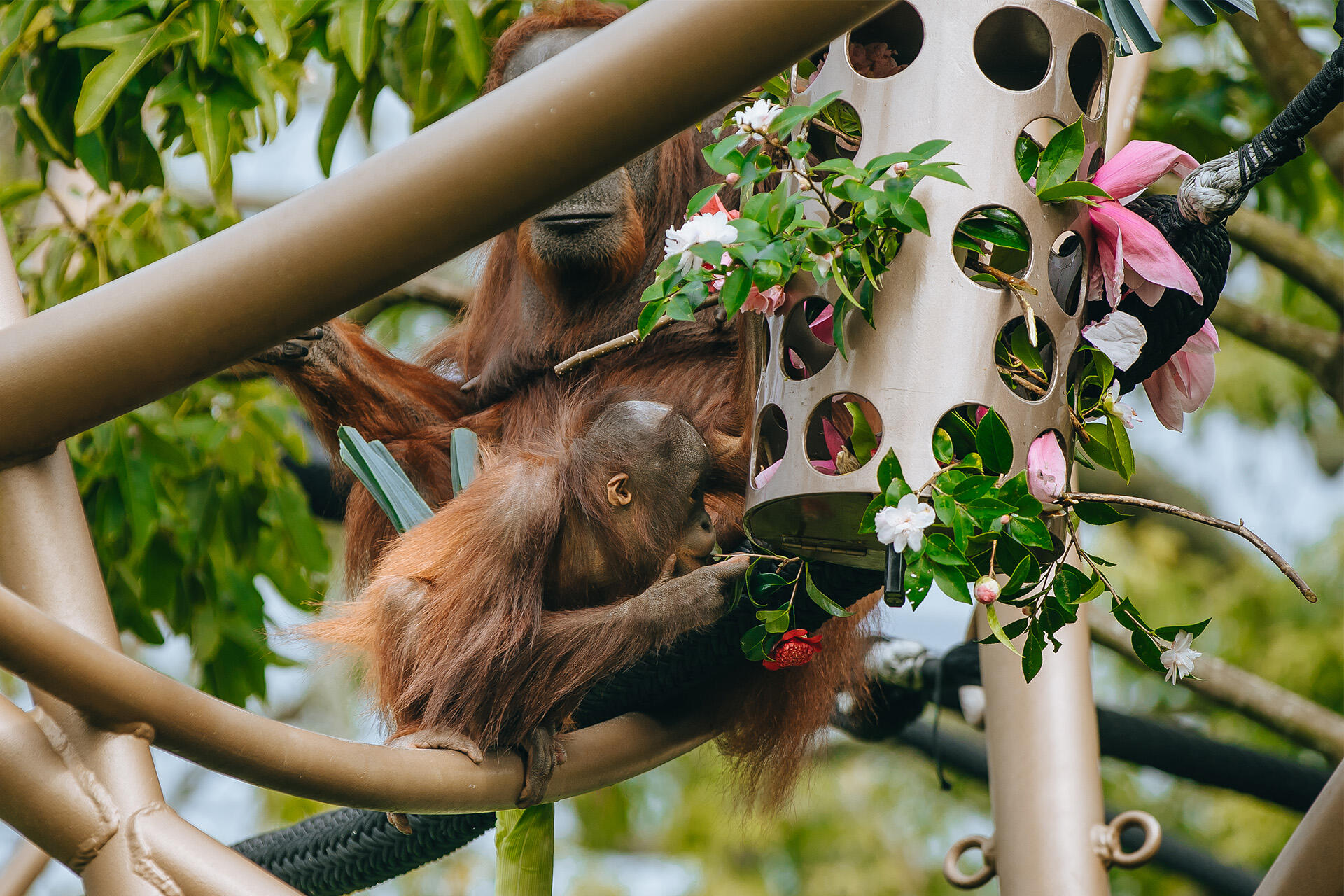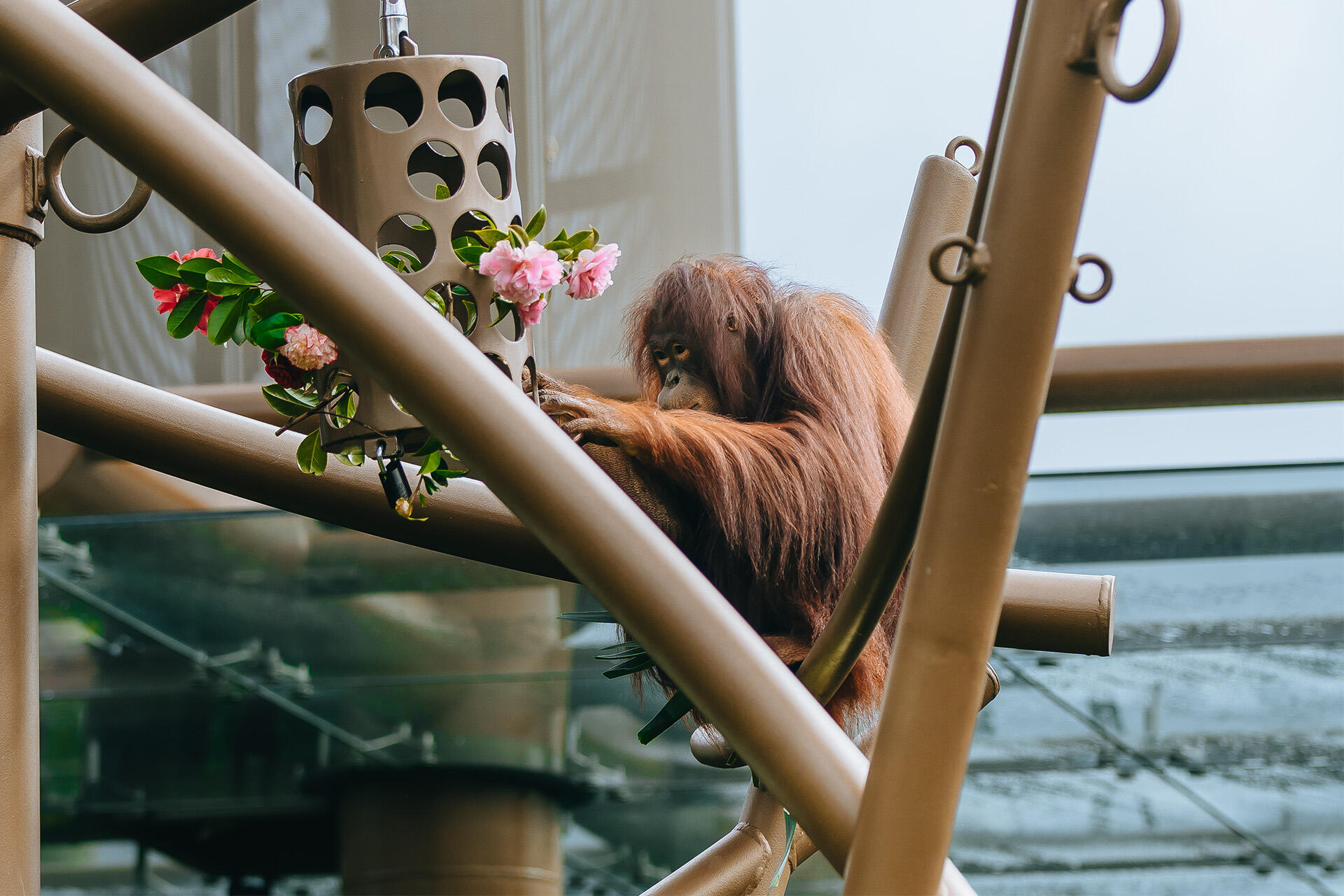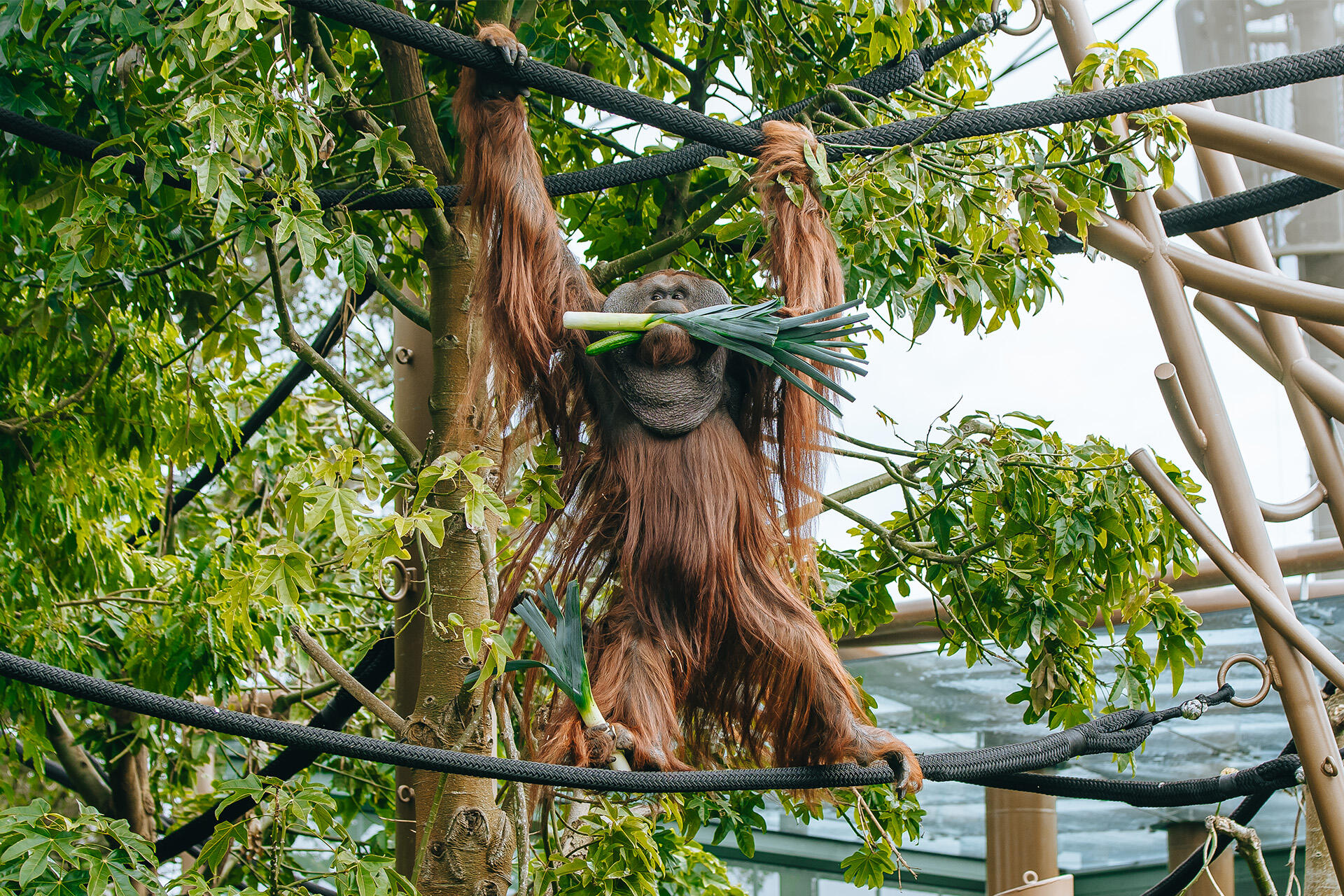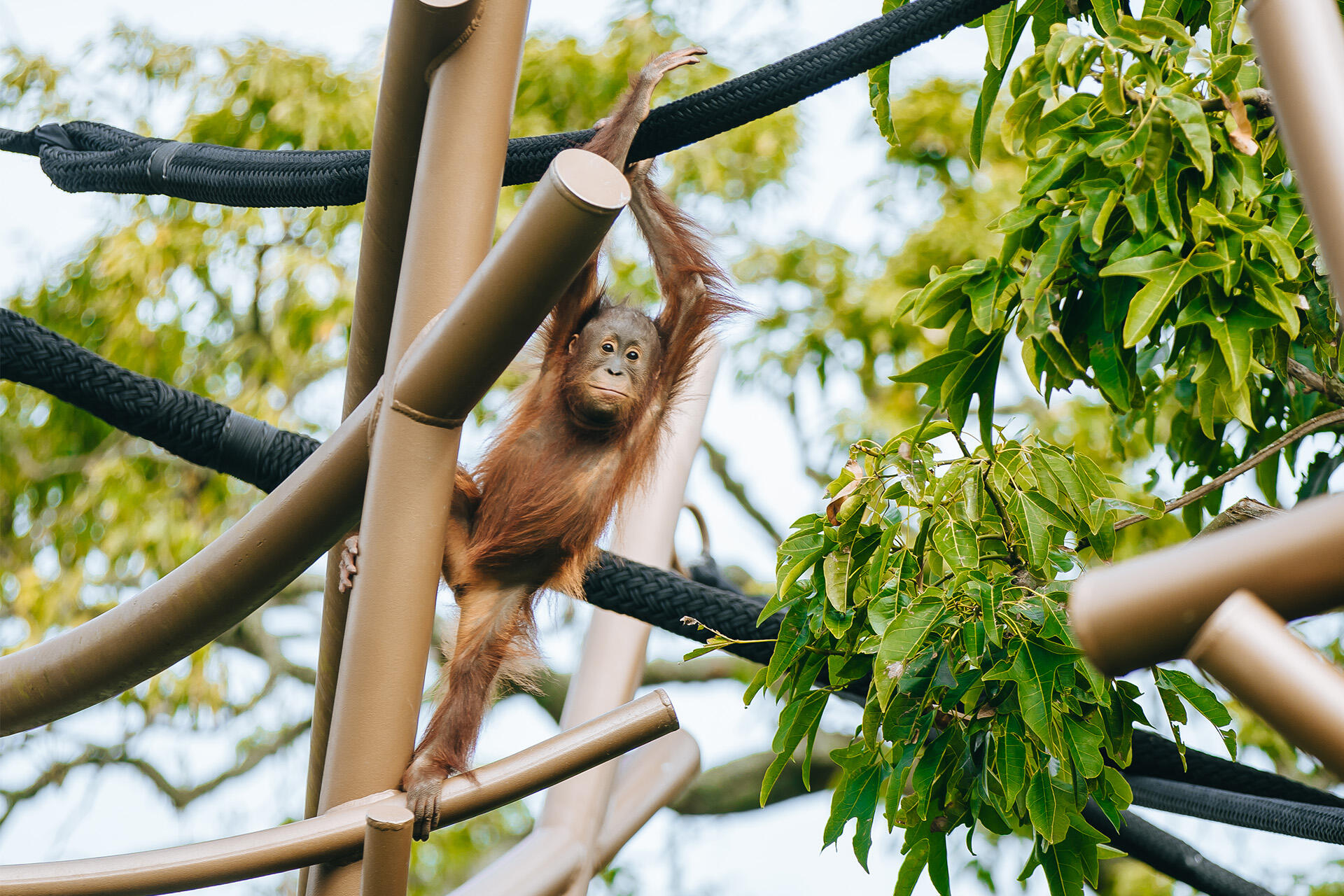“Bahmi was totally intrigued and eager to play with Daya from the get-go,” says senior Primate keeper Jacqui. Initially while still shy, he was a bit like the annoying younger sibling to her, but that soon changed as Daya settled in and grew more comfortable and confident.
“Being young herself, Daya also has a playful energy, and together she and Bahmi have developed a great friendship. It’s very play based. Bahmi follows her everywhere, climbs all over her and is constantly encouraging rough and tumble. But there are times when the two of them will also just chill out quietly together (visitors might see them hanging out in one of the nests near the shared shelter viewing window). And he’s very sweet in the way that he loves to share his food with her,” says Jacqui.
Daya relocated to Auckland as part of an international zoo breeding and advocacy programme for this Critically Endangered great ape and once she matures, may breed with Charlie.
The Primate team have all observed her positive and unifying influence on Bahmi, Melur and Charlie as she has integrated with them. They are also quick to point out that as an exceptionally intelligent, cheeky, curious, and industrious orangutan who likes to test everything out - and has the patience to figure out how to disassemble things – she has kept everyone challenged and on their toes!
Primate keeper Grace, who has worked closely with Daya since she arrived, describes her as “a very clever, gentle, sensitive and strong-minded orangutan with loads of character and quirks who brings a young energy to the group”.


